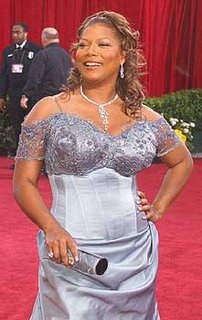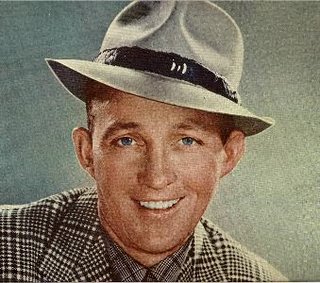Archives
- 01/01/2004 - 02/01/2004
- 02/01/2004 - 03/01/2004
- 03/01/2004 - 04/01/2004
- 04/01/2004 - 05/01/2004
- 05/01/2004 - 06/01/2004
- 06/01/2004 - 07/01/2004
- 07/01/2004 - 08/01/2004
- 08/01/2004 - 09/01/2004
- 09/01/2004 - 10/01/2004
- 10/01/2004 - 11/01/2004
- 11/01/2004 - 12/01/2004
- 12/01/2004 - 01/01/2005
- 01/01/2005 - 02/01/2005
- 02/01/2005 - 03/01/2005
- 03/01/2005 - 04/01/2005
- 04/01/2005 - 05/01/2005
- 05/01/2005 - 06/01/2005
- 06/01/2005 - 07/01/2005
- 07/01/2005 - 08/01/2005
- 08/01/2005 - 09/01/2005
- 09/01/2005 - 10/01/2005
- 10/01/2005 - 11/01/2005
- 11/01/2005 - 12/01/2005
- 12/01/2005 - 01/01/2006
- 01/01/2006 - 02/01/2006
- 02/01/2006 - 03/01/2006
- 03/01/2006 - 04/01/2006
- 04/01/2006 - 05/01/2006
- 05/01/2006 - 06/01/2006
- 06/01/2006 - 07/01/2006
- 07/01/2006 - 08/01/2006
- 08/01/2006 - 09/01/2006
- 09/01/2006 - 10/01/2006
- 10/01/2006 - 11/01/2006
- 11/01/2006 - 12/01/2006
- 12/01/2006 - 01/01/2007
- 01/01/2007 - 02/01/2007
- 02/01/2007 - 03/01/2007
- 03/01/2007 - 04/01/2007
- 04/01/2007 - 05/01/2007
- 05/01/2007 - 06/01/2007
- 06/01/2007 - 07/01/2007
- 07/01/2007 - 08/01/2007
- 08/01/2007 - 09/01/2007
- 09/01/2007 - 10/01/2007
- 10/01/2007 - 11/01/2007
- 11/01/2007 - 12/01/2007
- 12/01/2007 - 01/01/2008
- 01/01/2008 - 02/01/2008
- 02/01/2008 - 03/01/2008
- 03/01/2008 - 04/01/2008
- 04/01/2008 - 05/01/2008
- 05/01/2008 - 06/01/2008
- 06/01/2008 - 07/01/2008
- 07/01/2008 - 08/01/2008
- 08/01/2008 - 09/01/2008
- 09/01/2008 - 10/01/2008
- 11/01/2008 - 12/01/2008
- 01/01/2009 - 02/01/2009
- 04/01/2009 - 05/01/2009
- 07/01/2009 - 08/01/2009
- 09/01/2009 - 10/01/2009
- 10/01/2009 - 11/01/2009
- 11/01/2009 - 12/01/2009
- 12/01/2009 - 01/01/2010
- 03/01/2010 - 04/01/2010
Utopian Turtletop. Monsieur Croche's Bête Noire. Contact: turtletop [at] hotmail [dot] com
Sunday, August 27, 2006

 STARS
STARSThe recent discussion between Carl Wilson and Peli Grietzer on Brechtianism in song and the distinction between the “monologue” mode of song, in which the singer represents his or her private feelings on a matter, and the “narrative” or “ballad” mode of song, in which the singer tells a 3rd-person tale, reminded me of old thoughts of mine on music of introspective meditation versus music of the social dancing body, and the related distinction between the “monologue” song and the “soliloquy” song. A Nat King Cole doc on public TV helped me see the distinction: Nat King Cole looking the camera in the eye exemplified the “monologue” approach to singing as opposed to rock’s “soliloquy” approach. In the “monologue” song, the singer represents him- or herself as addressing another person; in the “soliloquy” song, the singer represents him- or herself as musing privately and without audience.
An unexpected recent thought related to this distinction: Hip hop movie stars Queen Latifah, Ice Cube, Will Smith, Ice-T, and Mark Wahlberg are the first musicians to become Movie Stars since Bette Midler. Many rock stars have acted in movies, but none since Elvis, with the possible exceptions of David Bowie and Madonna and Kris Kristofferson, have become stars, and neither Bowie nor Madonna present themselves singing in the “soul-baring soliloquy” rock mode, and Kristofferson is more of a country singer, which is to say, a monologue more than a soliloquy singer. Like country, hip hop is much more of a “monologue” than “soliloquy” style. A rapper, like a pre-rock pop singer and a country singer, looks the audience in the eye. A rapper also has to have an acute sensitivity to a song’s individual words and can’t steamroller over their nuances in the service of an over-riding mood. Rock singers often subsume moment-by-moment verbal-emotional nuance into that over-riding mood; the great pre-rock-style singers didn’t. Acting requires sensitivity to language.
Persona-shifting rock singers like Bowie, Madonna, and Tom Waits undermine the monologue-soliloquy notion -- which rock and pre-rock singers share -- that the singer is speaking of his or her own personal emotions.
In a comment to the above-linked post on his blog, Carl quotes me as having said to him via email that Randy Newman got to some of his Brechtian effects from Mark Twain, but that’s not what I meant to say. Twain’s satirical sting and use of unreliable narrators seem relevant to Newman, but Carl has pointed to more specific parallels between Newman and Brecht that I don’t see in Twain. I’m wary of the adjectivization of complex artists like Brecht; when I think “Brechtian” my first thought is toward the sensual, cold-blooded, misanthropic misogynist that the quasi-autobiographical character Baal represented and that Brecht appears to have been quite like in real life; I also think of the writer of classical epigrams who has been touted by some critics as the closest 20th century poet to the mood of the “Greek Anthology.” But “Brechtian” means neither of those things; it tends to refer to his revival and transformation of Renaissance theatrical techniques that break the flow of the naturalistic narrative by addressing the audience directly. While I feel Carl’s point that Newman’s style has Brechtian elements, I keep wondering whether Newman didn’t get them from Fats Waller and Bob Wills and indirectly from the American minstrel tradition. Except for this: Waller and Wills’s anti-naturalistic asides were the choices of brilliant performers, while Newman, like Brecht, wrote his dialectics into his scripts. But then, a minstrel song like Jimmy Crack Corn would fit right into a Brecht play or a Newman show.
The film critic Jonathan Rosenbaum has written of how movie stars over-ride all contradictions. Bono and Robert Plant over-ride all contradictions too, but it’s hard to imagine them as movie stars; an actor has to contend with the quotidian too, has to be attentive to the everyday flow and burble of life. The verbal acuity of the pre-rock popsters and the rappers equips them for this. But then I think of verbally nuanced rock stars like Lennon and Springsteen, and then I don’t know again. Not knowing is OK.
I agree with Carl that Newman’s thing is to emphasize the contradictions. Not star material -- not “hot” enough.
Comments:
Post a Comment